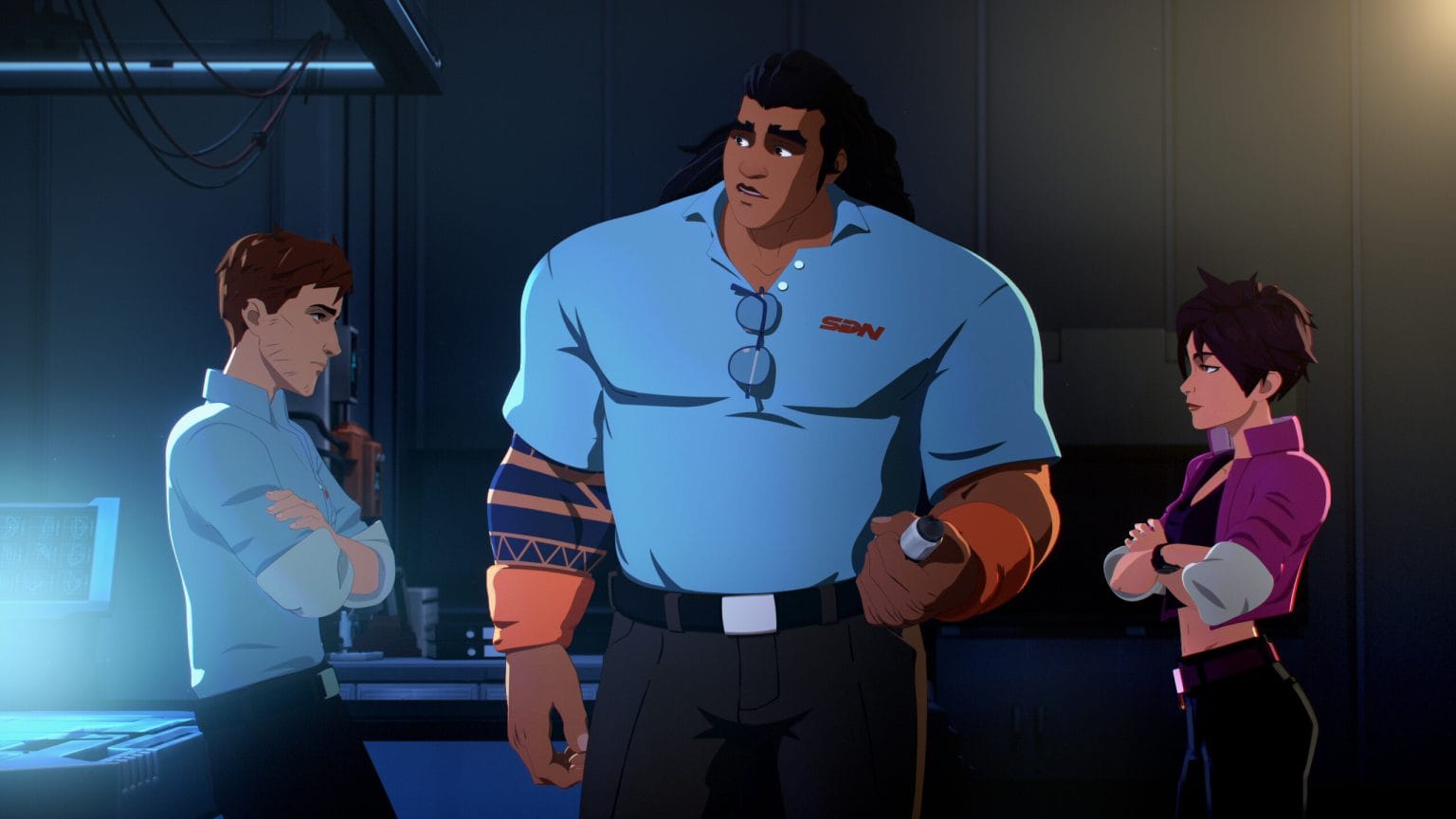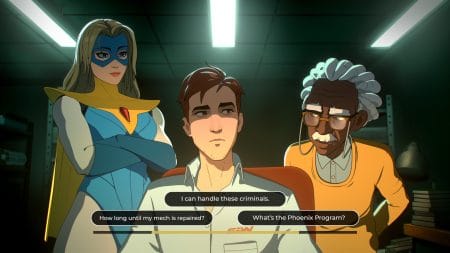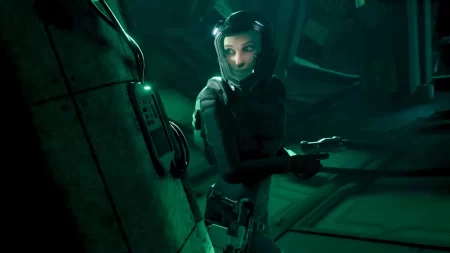Episodes 3 and 4 of Dispatch have arrived, bringing with them more action, romance, and tension. If the first two episodes in AdHoc Studio’s workplace superhero dramedy set the stage for our mostly lovable cast of misfits, the next two throw them sharply into chaos and conflict.
But while the presentation, writing, and performances are as sublime as before, Dispatch more and more resembles a stellar television show than the gut-wrenching ludonarrative dramas that came before. Is Adhoc Studio simply biding their time, slowly raising the stakes for a sprawling and branching finale that justifies the reputation they’ve earned as the minds behind The Walking Dead, or are we simply along for the ride?
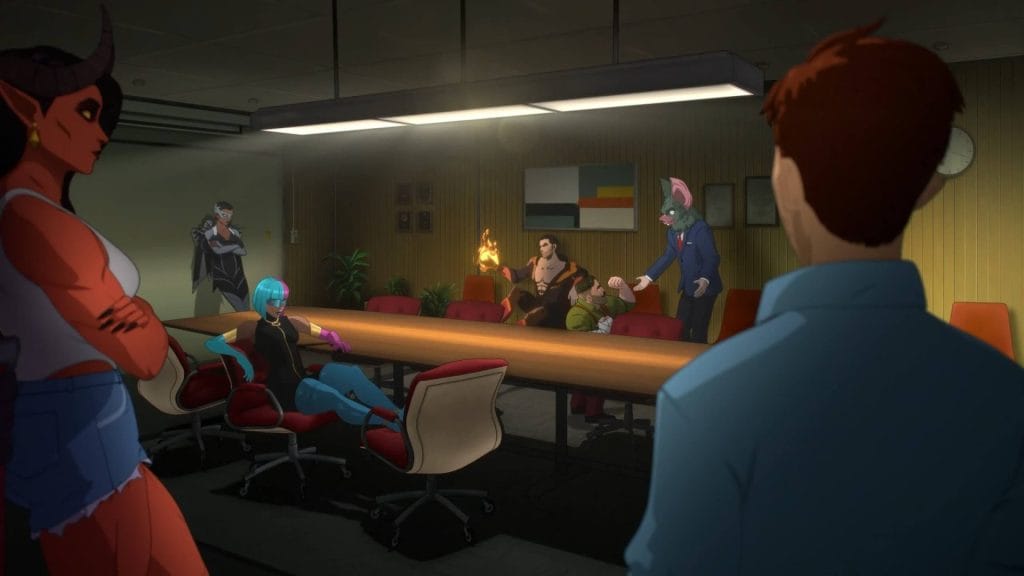
What’s Your Emergency?
Little has changed fundamentally about Dispatch in Episodes 3 and 4. Both episodes follow a similar flow to the initial episodes: Expect branching narrative dialogue options, a dispatch gameplay sequence, more cutscenes with dialogue options, more dispatches, and so on.
While the structure is rote, the dispatches themselves have now fully opened up, with several narratively induced gameplay wrinkles that provide just enough novelty to keep the experience fresh. If Episodes 1 and 2 served as a gentle introduction to Dispatch’s various mechanics, then 3 and 4 are where the flow of dispatches and strategy of assigning and upgrading team members really starts to click. In these episodes, you’ll “train up” heroes on branching ability paths, level up perks for Robert, and accrue a rudimentary set of consumables (e.g., one reduces hero cooldowns, while another restores heroes’ health to full capacity if injured). You’ll also start to pick up on the inherent synergies between certain team members and decide how to best make use of their perks.
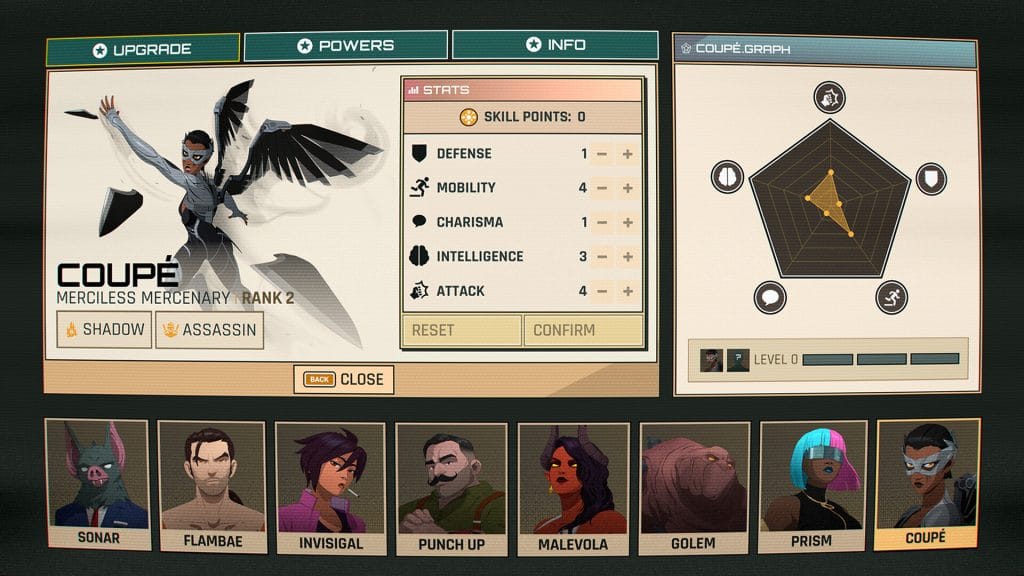
Dispatch still isn’t an exorbitantly deep or rewarding real-time strategy game, but it layers on enough mechanics to more than justify its presence alongside the core narrative. I’m hoping future episodes (reviewers were only given advanced access to Episodes 1–4) will continue to increase the number of player options and escalate the complexity. I’ve always found RTS games to be at their best when the combination of decision-complexity and time-pressure puts the player on the verge of “not-quite panic”; currently Dispatch lacks that fervorous ceiling.
One somewhat notable bug I encountered during play: A handful of the post-episode statistics are inverted or otherwise inaccurate. It’s pretty easy to tell when something is inverted based on context clues, but it’s still a jarring bug to encounter, and one AdHoc hopefully addresses moving forward.
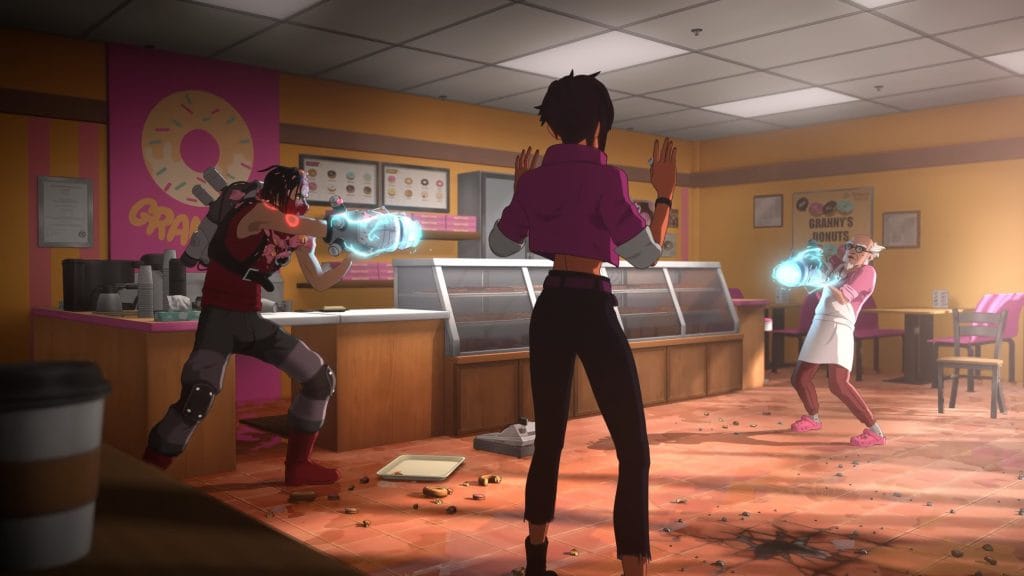
Invisigal Will Remember That… Or Will She?
While the dispatching escalates appropriately in Episodes 3 and 4, I can’t quite say the same about the narrative. Combined, these two episodes feature what I would classify as three pivotal choices that clearly signpost downstream effects on the plot and Robert’s relationships with particular characters.
Each choice feels narratively impactful and, most importantly, comes with that agonizing feeling that many classic Telltale stories fomented — a truly split decision, the kind that makes you immediately want to sprint to YouTube and search up the alternative path just to see how it would have played out. This is a notable step up from the fairly on-rails experience of the first two episodes, and I can only hope that future content will continue to branch out.

Despite improvements, however, the number of times the game actively flags one of your choices with a classic “X person will remember that” still feels a bit scarce. Additionally, some of the moments that prompted this notification were a little eyebrow-raising (in a confusing way, not an intriguing way). Specific choices from Episodes 1 and 2 definitely open up dialogue choices in Episodes 3 and 4 that wouldn’t have been present otherwise, so there’s clearly some continuity at play. I’m just not sure the payoff for these decisions will be worth it.
Describing this concretely is a little difficult, but in essence, some of the dialogue choices in these scenes were more different flavors of the same meaning than outright divergent paths. When these “planted flags” pay off in future episodes, I wonder if the specific decisions that led to them will even ring a bell for players. (I ran through each dialogue-tree moment multiple times to observe every outcome, and so far, I’m not 100% sold.)
These feelings are ultimately speculative; it’s possible Episodes 5–8 will thread the needle in a way that’s consistent with past Telltale titles. For now, I’m cautiously optimistic.
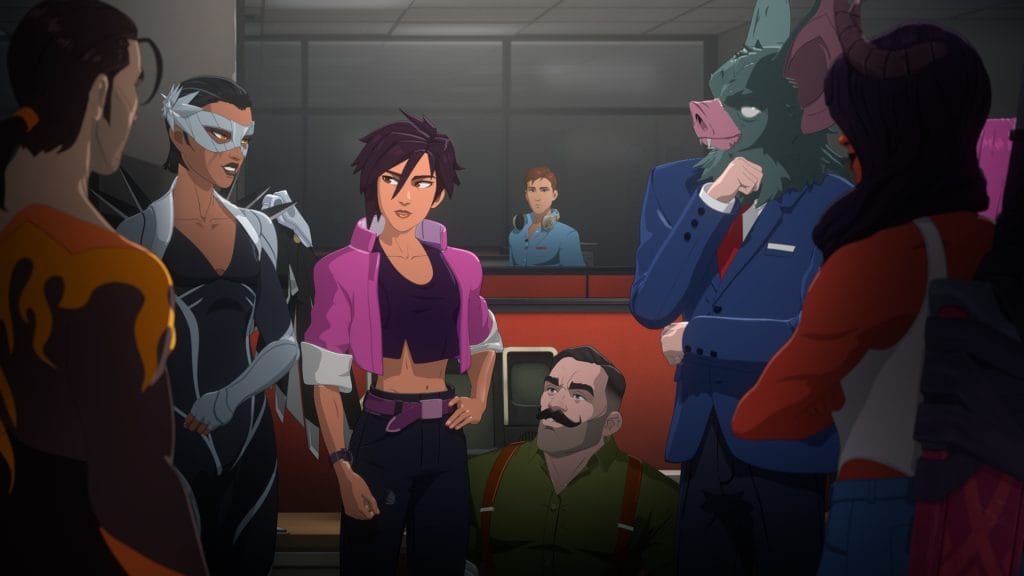
Woooo, Yeah Baby! That’s What I’ve Been Waiting For!
While I’ll avoid going into specific spoilers, I can definitively say that I really loved the character work in Dispatch Episodes 3 and 4. While there’s a noticeable bias toward certain members of the cast — Invisigal is clearly the most fleshed-out member of the Z-Team, while Golem and Malevola don’t get much to work with at all — the writing and dialogue really flesh out the nuances for the characters that do get the limelight. Dispatch also gets into some spicy territory and clears the “hurdle of cringe” with aplomb, which is always welcome to see.
Outside of the ex-villains of the Z-Team, members of the support staff and other characters get pulled into the fold as well. The dialogue continues to be punchy, which probably plays better to some than others, but I found it to be a delight, especially Invisigal’s crass shock-humor and Robert and Chase’s over-the-top ball-busting. Even the ambient dialogue that comes about during dispatches felt on point.
The “bit” characters, voiced by celebrity voice actors, continue to impress in their performances, even as they occasionally “break” during scenes. (I should note that Jacksepticeye’s Punch Out sometimes has notably worse audio quality — but perhaps that’s a bug.) I honestly didn’t think MoistCritikal had the acting chops he displayed in these episodes, but I was genuinely impressed.

Final Thoughts
I enjoyed Episodes 3 and 4 of Dispatch as much as I did the first two. But the nature of narratively sprawling games is that it isn’t obvious if all the game has to offer is the illusion of choice until you get deeper and deeper in.
Ultimately, that means I’m grading every episode of Dispatch on a curve that gets harsher the further we go. At the halfway point, the performances, characters, and writing are good enough that I feel confident I’ll end up enjoying this game no matter how things play out. But my central question remains: Is Dispatch a sprawling narrative experience akin to Telltale’s The Walking Dead, or are we just along for the ride?
The latter relegates Dispatch to an enjoyable narrative that could be experienced as a YouTube video; the former justifies it as a must-play game. Right now? I’d say it’s up in the air.
Score: 8.0/10
Dispatch, developed and published by AdHoc Studio, is scheduled to release across eight episodes. Two new episodes release each week, starting with Episodes 1 and 2 on October 22, 2025, and finishing with Episodes 7 and 8 on November 12, 2025. The game is available on PC (via Steam) and PlayStation 5. MRSP: $29.99 (includes all eight episodes). Version reviewed: PC.
Disclaimer: A review code was provided by the publisher.
Huge video game, comic book, and anime fan. Spends way too much time watching things he doesn’t like. Hates Zack Snyder. Mains Falco.


